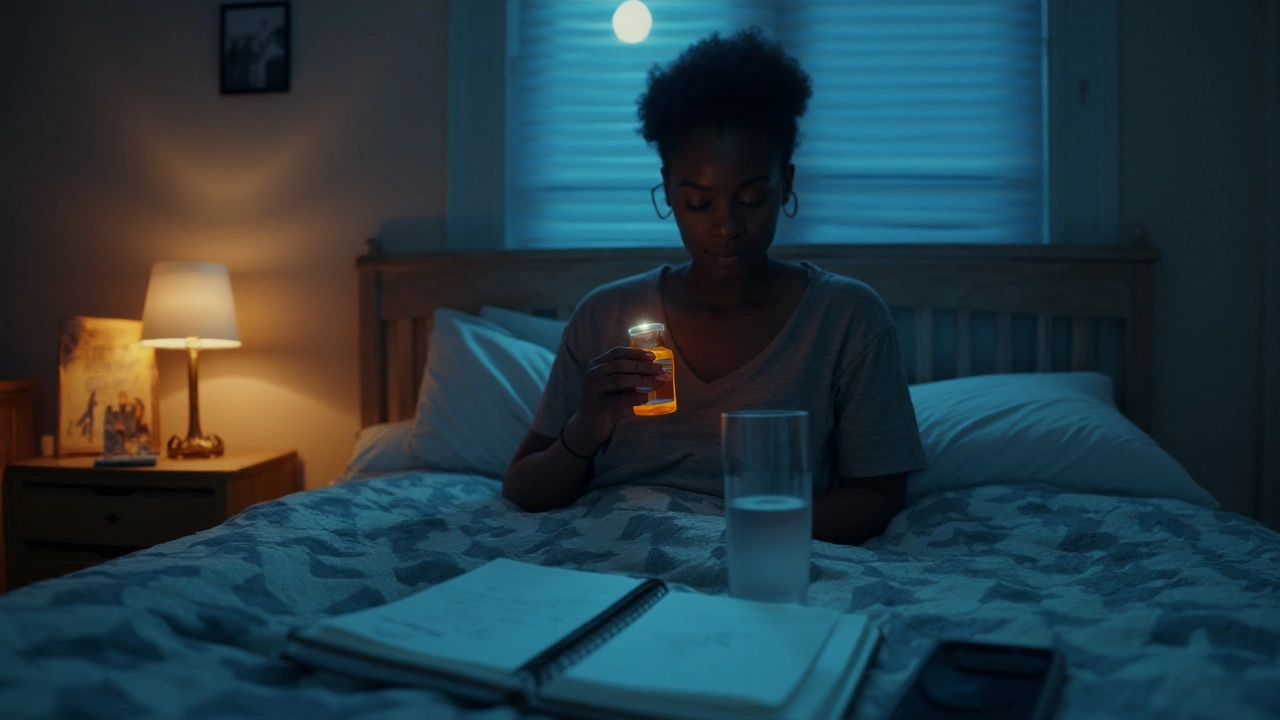Phenytoin and Sleep Disturbances: What You Need to Know
If you take phenytoin for seizures, you might have noticed that bedtime feels harder than usual. Many people report trouble falling asleep, waking up often, or having strange dreams. These sleep changes aren’t a myth – they’re a real side effect of the drug. Understanding why it happens and what you can do about it can help you get back to a decent night’s rest without stopping your medication.
Why Phenytoin Can Disrupt Your Night
Phenytoin works by calming nerve activity in the brain. While that’s great for preventing seizures, it also interferes with the chemicals that control sleep cycles. The drug can increase the amount of waking time during the night and reduce deep‑sleep phases, leaving you feeling unrested. Some users notice vivid or even frightening dreams because phenytoin changes REM sleep patterns.
Dosage matters too. Higher doses tend to produce stronger sleep effects. Taking the pill late in the day can push its peak activity into your usual bedtime window, making it harder to drift off. Age and other medicines you’re on can amplify these issues – for example, stimulants or certain antidepressants may add to insomnia.
Practical Ways to Reduce Sleep Problems
The first step is to look at when you take phenytoin. If you currently take it in the evening, ask your doctor if moving the dose to morning or early afternoon is safe. Shifting the timing often moves the peak activity away from bedtime.
Stick to good sleep hygiene: keep a dark, cool room, limit screen time an hour before bed, and avoid caffeine or heavy meals late in the day. Even small changes like a short walk after dinner can help signal your body that it’s time to wind down.
If insomnia persists, talk to your prescriber about a possible dose adjustment. Sometimes lowering the daily amount by a little reduces sleep disruption while still controlling seizures. In other cases, doctors may switch you to another antiepileptic with fewer sleep side effects, such as levetiracetam or lamotrigine.
Over‑the‑counter melatonin can be useful for resetting your internal clock, but check with a healthcare professional first. Avoid prescription sleep aids unless a doctor specifically recommends them, because mixing sedatives with phenytoin can cause unexpected reactions.
Finally, keep a simple sleep diary for a week. Note what time you take the medication, when you go to bed, how many times you wake up, and any dream oddities. This record gives your doctor concrete data to adjust treatment more accurately.
Sleep problems don’t have to be a permanent side effect of phenytoin. By tweaking timing, practicing solid bedtime habits, and staying in touch with your healthcare team, you can manage the drug’s impact and protect both seizure control and nightly rest.
Phenytoin and Sleep: How This Epilepsy Drug Can Disrupt Your Nights (and What to Do)
Waking at 3 a.m. since starting phenytoin? Learn how phenytoin affects sleep, how common it is, what to watch for, and practical fixes you can use today.
